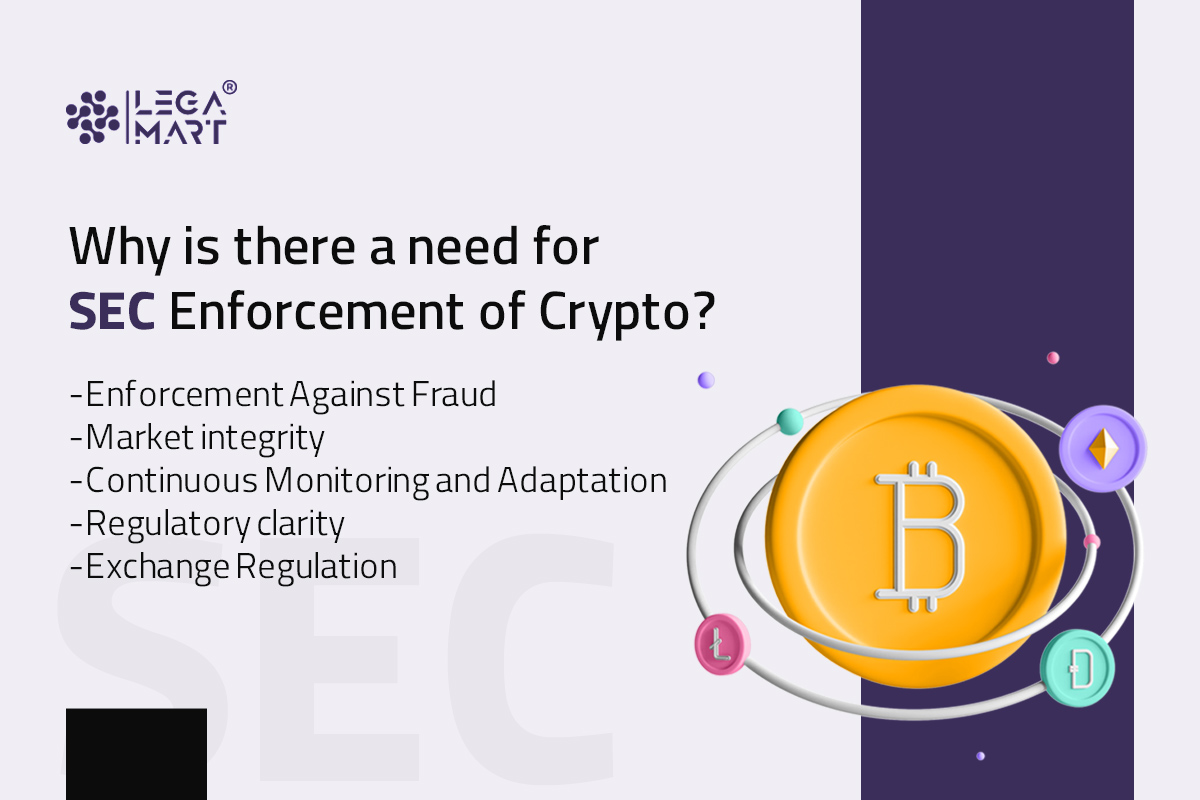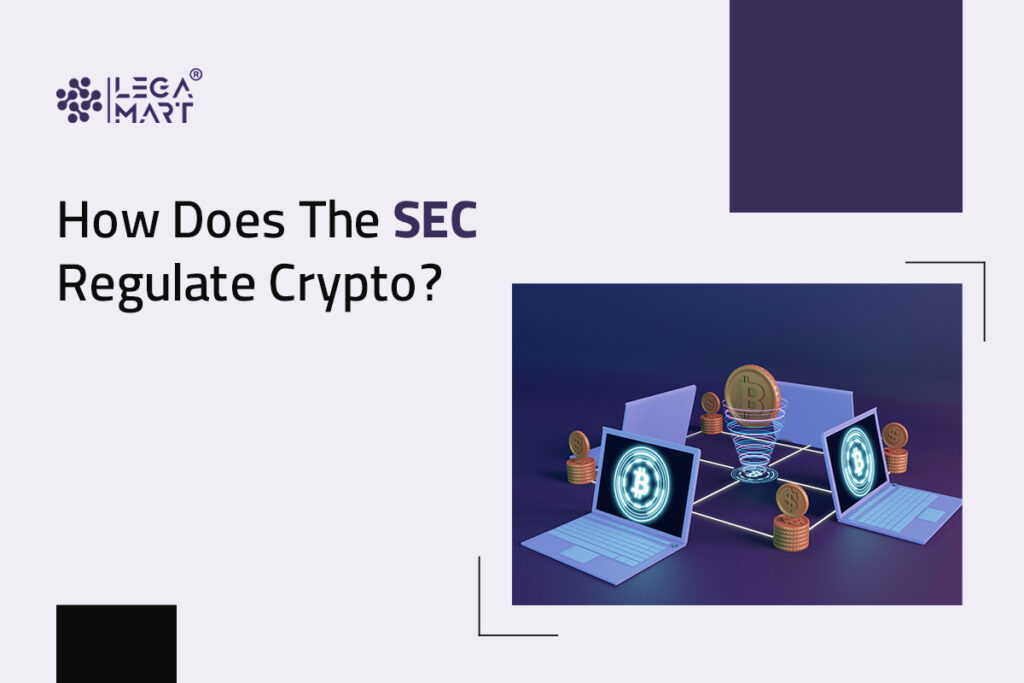Introduction
The rise of cryptocurrencies has introduced new challenges and opportunities, prompting regulatory bodies like the US Securities and Exchange Commission (SEC) to adapt and establish guidelines for this evolving digital landscape. In this context, the SEC seems keenly interested in making the crypto industry cleaner. The SEC regulate cryptocurrency plays a crucial role in protecting investors and maintaining market integrity, and its approach to regulating cryptocurrency reflects the dynamic nature of the industry. Some investors think more rules would make cryptocurrency more legitimate, but others worry too many rules might take away its decentralized appeal.
An In-Depth Understanding of Cryptocurrency
Cryptocurrency is like digital cash that people exchange directly. It works on a decentralized system, meaning there’s no central authority controlling it. Instead, ownership and transfers are recorded on a public ledger using unique codes. These codes make up the public address, and the owner proves ownership with a private key, forming their cryptocurrency wallet. People can create as many wallets as they want without sharing personal information. While this technology can lower transaction costs and provide access to unconventional financial services, its anonymity raises concerns about potential criminal use. Traditional financial regulations usually rely on overseeing banks and other institutions, but the design of cryptocurrencies, with their anonymity and decentralization, makes it harder for governments to regulate the market.
Why Is There a Need for SEC Enforcement of Cryptocurrency?

The need for SEC enforcement in the realm of cryptocurrencies arises from the complex dynamics that impact various stakeholders, including investors, entrepreneurs, and the broader public. In this rapidly evolving digital financial landscape, regulatory intervention becomes essential for increased investor protection, market stability, and transactional clarity.
The rationale behind SEC enforcement can be dissected into several key areas; –
Enforcement Against Fraud
Firstly, there’s a focus on investor protection. SEC actively investigates and takes legal action against fraudulent activities within the crypto space. In doing so, SEC enforcement aims to prevent fraud in the relatively new and often fraudulent cryptocurrency markets, acting as a deterrent against malicious activities and safeguarding investors. Additionally, by subjecting crypto markets to securities laws, the SEC ensures that enterprises disclose accurate and comprehensive information, empowering investors to make informed decisions.
Market integrity
With the susceptibility of cryptocurrency markets to price manipulation due to their anonymity and lack of regulation, SEC oversight becomes instrumental in curbing manipulative practices, thus promoting fair prices. Monitoring these markets for unusual activities further contributes to maintaining market integrity and fostering investor trust.
Continuous Monitoring and Adaptation
Given the rapid evolution of the crypto landscape, the SEC remains vigilant. It continuously assesses new developments and adjusts its regulatory approach accordingly. By establishing a legal framework, the SEC’s regulations can legitimize crypto enterprises, potentially attracting traditional investors and institutions and promoting broader adoption. Moreover, enforcing anti-money laundering (AML) and counterterrorism financing (CTF) regulations helps address public concerns about the potential misuse of cryptocurrencies.
Regulatory clarity
Defining boundaries between traditional securities and crypto assets provides clarity for entrepreneurs and investors, facilitating a more transparent and predictable environment. Compliance standards, established through SEC enforcement, assist crypto enterprises in navigating widely known regulations, reducing legal uncertainties.
Exchange Regulation
The global and borderless nature of cryptocurrencies necessitates cross-border collaboration. Exchanges listing securities tokens must register with the SEC as national securities exchanges. This regulatory control ensures that these platforms operate securely and within legal boundaries. Besides, international cooperation in enforcement efforts can address challenges that transcend geographical boundaries, contributing to a more harmonized regulatory approach in cryptocurrency.
Should Cryptocurrency Be Considered As Securities Within the SEC’s Regulatory Authority?
In a legal case (SEC v. W.J. Howey Co.), the Supreme Court explained that “security” includes things traded for speculation or investment. The Court mentioned it covers various types, like a “certificate of interest,” “investment contract,” or anything commonly known as a “security.” An “investment contract” is a deal where someone puts money into a shared project and expects profits mainly from the efforts of the person promoting it or a third party.
In the usual understanding, cryptocurrency transactions would be seen as investment contracts, according to the standard interpretation (15 USC § 78c(a)(10)), as they likely meet the criteria outlined in the Howey Test.
The Howey Test considers a transaction as a security if it meets these four conditions:
- The investment is in a common enterprise.
- Money is invested.
- Profits result from the efforts of others.
- There is an expectation of earning a profit.
Investing in cryptocurrency fulfils all these conditions. Investors use money to buy cryptocurrencies, expecting a profit, and cryptocurrency operates as a common enterprise.
Additionally, the SEC used the Howey test in a report on an Initial Coin Offering (ICO) involving DAO, determining that the DAO didn’t meet the registration requirements outlined in securities laws. ICOs, a popular fundraising method in the crypto space, often attract the SEC’s attention. The SEC assesses whether tokens offered through ICOs are securities, subjecting them to registration requirements. This scrutiny ensures that investors are provided with adequate information and protection against fraudulent activities.
Beyond the context of ICO, the SEC offered guidance in 2018 regarding “Investment Vehicles Investing in Digital Asset Securities” and “Trading of Digital Asset Securities.” According to this guidance, parties holding digital securities or providing advice on them need to register and comply with regulatory and fiduciary obligations under the Investment Company Act of 1940. The statement also highlighted that entities advising on digital asset securities and operating as exchanges for them must adhere to federal registration requirements with the SEC. Consequently, cryptocurrencies likely fall within the SEC’s regulatory authority.
How Does the SEC Regulate cryptocurrency?
Considering the anonymous and unpredictable nature of cryptocurrencies, the SEC has two potential regulatory approaches;
- Firstly, it could mandate that all cryptocurrency exchanges obtain broker-dealer registration under Section 15 of the Securities Exchange Act of 1934. Broker-dealers facilitate transactions and can transfer clients’ assets to third parties.
- Secondly, it may require all cryptocurrency exchanges to register as national securities exchanges under Section 6 of the Act. These registration requirements would enable the SEC to monitor the cryptocurrency market, ensuring protection for investors and customers.
Registration can create a modest barrier for cryptocurrency exchanges, offering the SEC greater oversight because registration provides detailed information about the offering, issuer, and other pertinent details; thus, by enforcing registration, the SEC enhances transparency and allows investors to make informed decisions.
The trade-off might be reduced ICOs due to higher entry barriers imposed by registration requirements. Nevertheless, both registration options enable the SEC to balance safeguarding investors’ interests and allowing the cryptocurrency market to operate.
Some Crypto Cases Behind SEC Action
Recent cryptocurrency scandals have highlighted these assets’ susceptibility to fraud, prompting the SEC to advocate for stronger regulations. Notable cases include:
Kraken Ceases Unregistered Crypto Asset Staking Program:
Kraken, known for its cryptocurrency exchange, decided to halt its unregistered offer and sale of a crypto asset staking-as-a-service program. As part of settling charges brought by the SEC, Kraken had to pay $30 million.
The Securities and Exchange Commission (SEC) charged Payward Ventures, Inc. and Payward Trading Ltd., commonly known as Kraken, for failing to register the offer and sale of their crypto-asset staking-as-a-service program. This program involved investors transferring crypto assets to Kraken for staking with advertised annual returns of up to 21 per cent. To settle the charges, Kraken agreed to immediately cease offering these services and pay $30 million in disgorgement, prejudgment interest, and civil penalties.
SEC Charges Kim Kardashian for Crypto Security Promotion:
The SEC took action against celebrity Kim Kardashian for unlawfully promoting crypto security. This move is in response to the increasing need for regulatory oversight in the cryptocurrency space. The Securities and Exchange Commission (SEC) charged Kim Kardashian for promoting a cryptocurrency without disclosing the payment she received for the promotion. Kardashian settled the charges by agreeing to pay $1.26 million in penalties, disgorgement, and interest.
Conclusion
In the ever-changing world of cryptocurrencies, the SEC plays a pivotal role in establishing and maintaining a regulatory framework that safeguards investors and maintains market integrity. By addressing challenges such as fraud, ensuring transparency in offerings, and adapting to technological advancements, the SEC seeks to foster a secure and thriving digital asset ecosystem. As the crypto landscape continues to evolve, so will the SEC’s efforts to balance innovation and investor protection.





